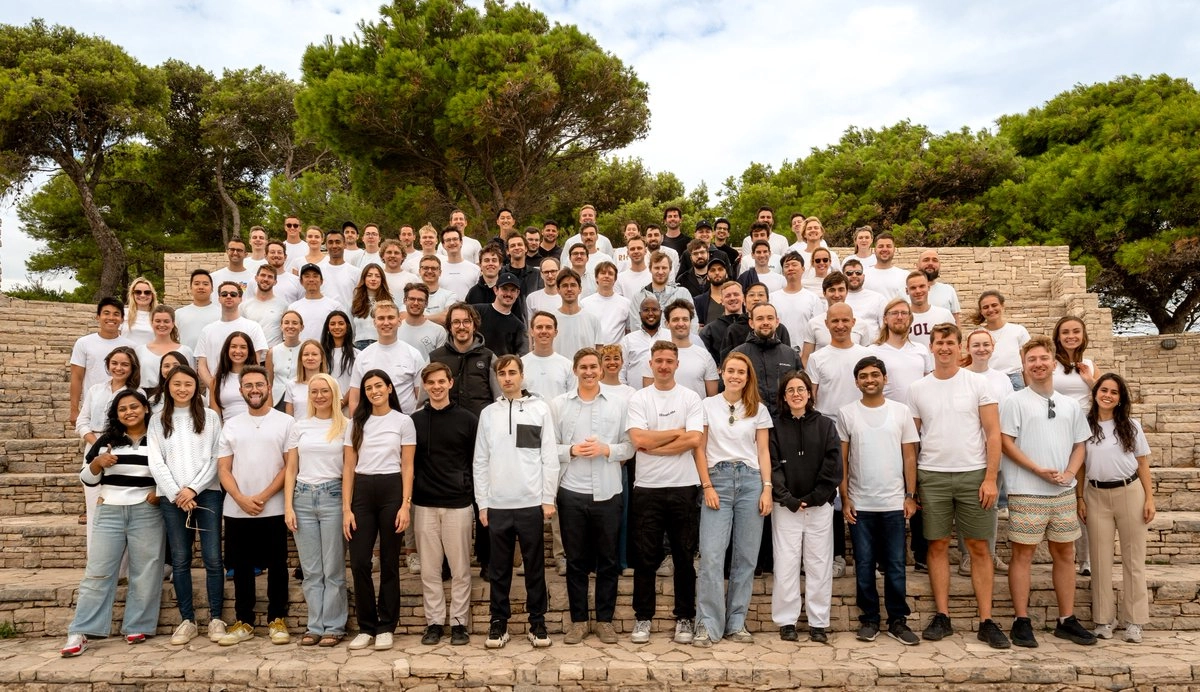The role of the Organizational Development Manager (ODM) is a key function for any company looking to develop a strong culture. The role holder, often from a human resources background, helps managers align organizational goals and works to ensure that the company creates a robust internal ecosystem. At Verita HR this role is key to our people strategy.
The History of the Organizational Development Role
Human resources became more efficient in the twentieth century. Negotiating with trade unions had become just one part of HR’s responsibilities. Companies started to understand that HR could help in more ways than just dealing with disgruntled employees. Companies started to understand that HR could contribute beyond addressing employee grievances—helping raise engagement and delivering results to shareholders.
In the United Kingdom, Investors in People has been working with organizations for over 30 years. It is the global benchmark when it comes to people management. In the UK, IIP offers companies a three-year people management accreditation..
Key benefits of the accreditation include:
- Giving your people a voice
- Measuring and recognizing your progress
- Support in tackling areas for improvement
If people feel engaged and trusted, your business could be generating up to 38% more revenue.
We will help you overcome your challenges and push your organisation to the next level.
Come talk to us now!https://t.co/AUolYH8p7b
If you have an Organizational Development Manager in place in your company, then implementing a sophisticated framework like Investors in People is much easier. In a current job description available online for an ODM in London, the employer highlighted the ‘operational delivery’ for the ODM by adding this point:
“Design and delivery of interventions to meet organizational development needs identified in continuous improvement frameworks such as Investors in People and Health Workplace Charter to retain and improve accreditation status.”
There is some science that has evolved as well. Several key concepts have evolved within the field, including the HR Balanced Scorecard and the Employee Value Proposition (EVP). These are tools an ODM can leverage to enhance organizational performance.
What about the Employee Value Proposition?
Investors in People argue that an Employee Value Proposition is arguably the single most effective tool an HR Team or Business Owner have to attract, retain and engage great people and talent. At Verita HR, just like any organization, we need to have great people and talent. A great ecosystem. This starts with a great Organizational Development Manager who herself should have a great Employee Value Proposition in her own role.
An Employee Value Proposition or EVP is the part of the job advert where a company is supposed to extoll why its great to join them. It’s also a description of the “return an employee gets in terms of benefits and overall experience, for bringing their skills, capabilities and knowledge to your organization.”
A competitive salary and nice office aren’t enough. To attract, retain, and develop the best talents. You need more. You need an Organizational Development Manager who wants to develop an ecosystem. So you need an ecosystem that the ODM wants to help develop. One who ensures that company values are upheld. Which means that you need company values that resonate with people. And one who understands what talents want in an organization and works to find and retain them. If there are no talents in your organization, it can be hard to attract and retain an ODM too. Work on your EVP. It will be one of the most important topics of 2025.
Unlock your employees' #potential by giving them a clear "why" for their hard work. Your Employee Value Proposition (#EVP) is key, but many companies face common roadblocks. Do any look familiar? https://t.co/FIS7cG8s61 pic.twitter.com/sGACwNtfRk
— Korn_Ferry (@Korn_Ferry) November 30, 2024What does the Organizational Development Manager do at Verita HR?
There are four key elements of the ODM role at Verita HR. These are not ALL the aspects of the role; those will come later.
Enhancing Employee Satisfaction. This is done by ensuring there are company ‘habits.’ Rewards and recognition are also communicated through different initiatives.
Communicating Company Goals. Each year the company must update its position on the market. It needs to be aware of ongoing trends like Web3. Most importantly it needs someone who can communicate changing and permanent goals eloquently to the employee ecosystem.
Drive Change Management. Change is constant, but the goal at Verita HR is to stay One Step Ahead. To do this it’s not just necessary to support transitions or change. The ODM should also be aware of trends from the market.
Promoting Learning and Development. Training and development of skills are key to the growth of an organization. As Verita HR sits within the financial sector, learning is more than just how to be better at your job. Business English or the foundations of investing can also help engage an employee ecosystem.

What are the Job Requirements for an Organizational Development Manager?
At Verita HR the ODM has a very complex role. The job holder works with EVERY SINGLE department within the company. They also have a hot line to the entire leadership team. The actual role responsibilities are the following:
- Maintains training records for all training conducted by employees, including required documentation for company certifications such as ISO 9100
- Develop and Maintain competency matrix for all jobs and job families
- Develop, implement, and document development process for newly hired and promoted supervisors and managers, improve onboarding continuously
- Provide consultative support to business leaders in the development of short-term and long term succession planning.
- Ensure effective process, tools and programs are in place to provide necessary staff development with specific emphasis on Leadership Development programs
- Enhance new hire “induction” process to ensure an effective integration of all new employees.
- Provide ongoing feedback and counsel to employees and managers as necessary and appropriate to ensure successful integration
- Partner with divisional leaders to design, develop and maintain a Performance Management process that will support the development of a high-performance culture
- Participate with divisional leaders in the development and communication of HR programs & policies
- Oversee the development of internal training materials, job aids, and training manuals or procedural manuals; develop plan for coordinating the scheduling and delivery of instructor-led training
- Manage the development of corporate wide tests and testing procedures, ensuring all testing used throughout the company is valid and reliable
- Prepare and manage corporate training budget in accordance with company guidelines; provide senior management with reports indicating key performance ratios, training effectiveness, and cost / benefit analyses
- Travel throughout the company territory as required
- Needs assessment – Collaborate and interact with various employee groups to assess development needs as well as facilitate and administer interventions and assessment tools. (Career planning and development, mentoring, 360-degree feedback, competency identification, etc.). Provide overall project management of the global employee engagement survey process
- Analysis – Provide analysis and evaluation regarding the effectiveness of organizational structures, resources, tools and programs to determine those with the most impact to improving employee performance
The Skills needed by an ODM include the following:
- Demonstrated analytical, leadership, team building, and presentation skills
- Expertise interfacing with multiple departments and personnel at various levels\
- Strategic planning skills
- Ability to evaluate situations and assess needs
- High level communication skills: written – verbal – listening
- Ability to maintain and report on confidential information in an appropriate manner
- Ability to organize time and resources, is flexible, adaptive, and composed to balance multiple demands and adapt effectively to changing needs

Why the Organizational Development Manager Role Matters
The market for talented employees is very competitive. It’s important to retain key performers and foster an employee ecosystem. Having a talented ODM in your team maintains a strong culture in the company. This is because the ODM can help employees feel valued and empowered. The role holder can help teams approach goals with more clarity and direction.
Staff turnover in 2024 at Verita HR was the lowest in the history of the company. The company culture has developed, and rewards systems are becoming more visible. Due to an increased sense of ecosystem, the team feels more resilient. People always asked if your HR person delivers value in your organization. At Verita HR the Organizational Development Manager forms the HR team. They have already delivered value to the organization in 2024. We hope this continues into 2025.
When Verita HR was created in 2009 it was an underlying mission for the company to have HR processes and policies that were best in class. Over the years this underlying mission has evolved into creating the role of Organizational Development Manager. Today this role is critical to the future of both Verita HR’s clients as well as its employees.
If you want to work with a company that has people at the centre of its organization, then contact us today! At Verita HR your human resources strategy is important to us. Let’s see how we can improve it together.
Verita HR offers services including RPO | Permanent Recruitment | Outsourcing | Media Services
#EmployeeValueProposition #OrganizationalDevelopmentManager #InvestorsInPeople #HumanResources #VeritaHR #EVP #ODM


![W 2026 r. Polacy chcą sobie dorobić [badanie WPD: Wskaźnik Pracy Dorywczej]](https://g.infor.pl/p/_files/38989000/pieniadze-kalkulator-38988734.jpg)




